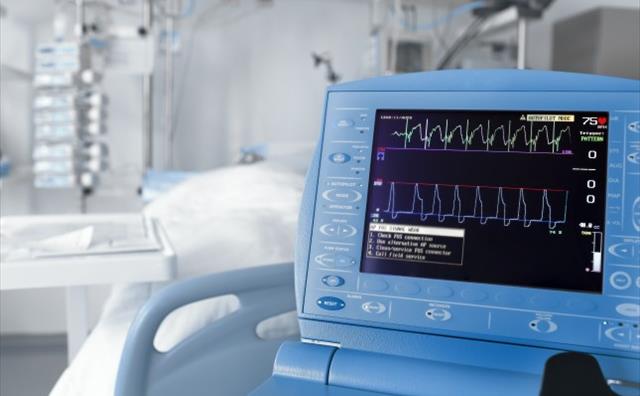BRANDED CONTENT
Securing a sustainable future in a post-Covid-19 world
Multinational petrochemical company SABIC says lessons from fighting the pandemic include further focusing on sustainability, staying agile and collaborating closely with customers
Sign up now: Get ST's newsletters delivered to your inbox

During the unprecedented pandemic, SABIC stepped up to be part of a collective effort in the global fight. PHOTO: ADOBE STOCK IMAGES
Follow topic:
The Covid-19 pandemic has brought to the fore some of the biggest health and economic challenges in decades. Many countries are still trying to contain the outbreak, but there has been progress and the world can emerge stronger as lessons are learnt and people adapt to the new and evolving normal.
Currently, most of the world's attention is on the development of promising vaccines, which could be introduced to the general population from as early as this month.
Equally important is the progress on other fronts, including the increased supply of protective gear and other critical medical equipment to healthcare workers on the front line.
This herculean effort involved multiple parties from producers of the plastic raw materials used in a wide range of medical supplies to the companies that make and distribute the actual products.
In India, for example, SABIC, a global diversified chemicals company headquartered in Saudi Arabia, delivered material to support the domestic design and production of 50,000 Covid-19 test kits per day amid a countrywide lockdown.
In Vietnam, where only limited sets of ventilators were available at the onset of the pandemic, SABIC's timely supply of the raw plastic material facilitated the production of 5,000 ventilators by a local company in just two weeks.
SABIC believes companies need to adapt to the changes brought about by the pandemic and create new and better ways to support customers and partners. The company has benefitted from its strategic network of manufacturing and distribution facilities across multiple geographies, robust business continuity planning and close collaboration with customers amidst the challenges.
SABIC says there are four key lessons that all companies must learn as they adjust to a new normal.
Sustainability is a must
According to SABIC, all stakeholders must commit to supporting sustainable solutions, which include designing products for recyclability and a circular economy.
While plastics have played a critical role in healthcare and safeguarding communities during the pandemic, it has also led to plastic misuse and waste management issues.
In Singapore, a survey showed residents discarded an additional 1,334 tonnes of plastic waste from takeout packaging and food delivery alone during an eight-week lockdown that eased on June 1.
What is heartening, though, is that a recent McKinsey survey found that 87 per cent of recyclers expect consumers to continue supporting sustainable or recycled products, regardless of the crisis or an economic downturn.
"Today, more than ever, industry needs to respond to the world's environmental and societal challenges by embedding sustainability into its very DNA," said Janardhanan Ramanujalu, SABIC vice president and regional head for South Asia, Australia and New Zealand.
SABIC, a leader in sustainability, continues to invest in science and technology to advance a circular economy where plastics are continually recycled and reused.
SABIC collaborates with customers to develop a circular economy for plastics, one in which products and raw materials are not wasted, but used to create new, valuable products. In 2019, SABIC unveiled its TRUCIRCLE™ portfolio and services to help achieve these goals.
SABIC's TRUCIRCLE™ products offer a wide range of circular solutions, such as design for recyclability (designing plastics that are easier to recycle from the outset), and mechanically recycled products (processing used plastic without significantly changing the chemical structure of its original material).
SABIC's TRUCIRCLE™ products offer a wide range of circular solutions, such as design for recyclability (designing plastics that are easier to recycle from the outset), and mechanically recycled products (processing used plastic without significantly changing the chemical structure of its original material).
They also include certified circular products from the advanced recycling of used mixed plastics (breaking down used plastics into its basic chemical elements before manufacturing them into new plastics) and certified renewable products from bio-based feedstock (producing resins from renewable sources such as wood pulp).

Being agile and quick to respond
When Covid-19 spread across the world earlier this year, governments closed borders and imposed lockdowns in various areas, disrupting the movement of goods and people that is the lifeline for many industries.
Some factories also converted their production lines to start producing much-needed products such as face shields and sanitisers to battle the pandemic.
Thanks to its comprehensive business continuity planning, SABIC managed to swiftly align production lines and switch to new, more agile supply chains.
This involved more than just supply chain, as the company's sales and technical teams needed to first work with customers to identify their specific -and in some cases new - requirements, before testing and mass production could happen.
SABIC products used widely in the healthcare industry include polycarbonate resins for the production of ventilators and respiratory masks, and polypropylene products for making medical disposable gowns, masks, shields and overalls.

Globally and across the Asia Pacific region, SABIC's initiatives in the healthcare space include supplying materials to manufacture ventilators for both domestic use and exports, and providing materials for Covid-19 test kits, anti-viral films used on elevator button touch pads, portable partitions and face-shields.
In Singapore, SABIC has supplied resins that contributed towards the production of contact tracing devices to help minimise the spread of Covid-19 within the community.
The lesson for companies, therefore, is that agility is key. Businesses must be responsive to realities on the ground and customer needs, such that they can quickly retool production lines and adapt smoothly to rapidly-evolving developments.
Collaboration with other businesses
Agile supply chains require close collaboration with various stakeholders.
In Asia Pacific, SABIC's trans-shipment hub in Singapore and Malaysia, worked closely with warehouse operators, shipping lines, land transport providers, banks, courier services and local authorities to assess and respond to the evolving Covid-19 developments across various countries and ports.
The close collaboration with customers resulted in the swift development of innovative solutions that helped address critical challenges brought about by the pandemic.

Leveraging digital technologies
Finally, the pandemic has highlighted the importance of utilising digital technologies such as blockchain technology within manufacturing processes and supply chain.
Earlier this year, SABIC received the Asia Pacific's Best Fintech Solution award at the Adam Smith Awards Asia 2020 for a fully digitised letter of credit trade transaction relating to the sale of resin by SABIC in Singapore to Malaysia's Simply Packaging.
The pilot transaction, which improved the speed of processing by 60 per cent, was the first trade blockchain transaction in Malaysia.
The digitised transaction will enable SABIC to significantly expedite the delivery process and reduce the cost of cross-border trade, paving the way for smoother trade flows between close-proximity markets.
"As part of our 2025 strategy, SABIC has committed to innovation, sustainability and implementing digitalisation technologies that improve its productivity and commercial capabilities," said SABIC's Ramanujalu.

Looking ahead
The global pandemic has brought to the forefront the significant role that plastics play, particularly in combating Covid-19. It has also exposed the fragility of global supply chains, forcing many companies to explore alternative networks.
As the world navigates towards a new normal, companies will do well to work together with customers and other business partners while remaining agile and responsive to unexpected developments.
Companies must also embrace sustainability for the good of the next generation and not be distracted by more immediate challenges, reiterated Ramanujalu.
As for SABIC, the company is committed to ensure short-term growth goes hand-in-hand with long-term benefits to the environment, the economy and society as a whole.
Look out for the third instalment of this four-part series, when we highlight key takeaways from the changing tides of 2020, and cast forward-looking predictions for the new year. For more information about SABIC, click here.


